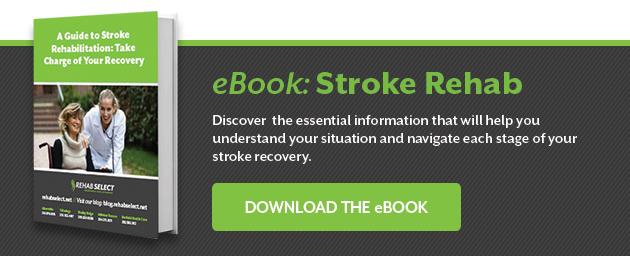
One of the most common side effects after suffering a stroke is difficulty with speech. This can be very frustrating for the stroke victim and can make recovery all that much more difficult. Speech therapy for stroke patients is an essential part of rehab, as it offers individuals the ability to recover the ability to communicate.
How Does Stroke Affect Speech?
Speech is not a simple process when it comes to brain functions. A person has to think about what they want to say. Then those thoughts must be translated into words. Then the brain must command the mouth and throat to form those words and transmit sound.
Understanding what someone is saying is just as complicated. The brain must capture the sound waves that the ears capture. Then the brain must translate those sound waves into words the brain can understand. Then the brain must comprehend what those words mean.
Now, how does stroke interfere with these processes?
Most strokes affect only one side of the brain. When it comes to physical motion, each side of the brain controls what is happening on the other side. That means the right side of the brain controls the left side of the body, and the left side of the brain controls the right side of the body. However, each side of the brain has additional functions besides controlling motion.
The left side of the brain is normally tasked with controlling speech and understanding language. So, if a stroke affects the left side of the brain, it is possible for it to affect that person's ability to speak or to understand what is being said. This is part of a condition known as aphasia.
Aphasia can cause problems with speaking, listening, reading, writing, understanding speech, and thinking of words when speaking or writing. The exact symptoms involved with a particular patient depend on the type and severity of the injury to the brain. It affects about 25% to 40% of stroke patients, according to The National Aphasia Association.
How Does Speech Therapy Post Stroke Improve Aphasia?
therapist works to identify the exact issues the patient is having and to develop a plan on how to improve and manage those issues. The therapist can help the patient use their remaining abilities to the fullest, to restore language abilities where possible, to work around remaining language problems, and to learn other ways to get the message across.
To have the best effects, speech therapy needs to start as soon as possible in stroke rehab. It can be done on an individual basis or as part of group therapy. It often starts with one-on-one therapy and transitions to group as the patient's needs and abilities change.
Families are usually a major part of speech therapy for stroke patients since they communicate with the affected individual on a daily basis. They have to learn how to communicate with the patient and to help them on the road to recovery. They should speak to the patient as an adult and include them in ongoing conversations. They should encourage communications of all sorts, whether by word, by gesture, or by drawing.
Find Stroke Speech Therapy in Alabama
If you or a loved one is experiencing problems with speaking or understanding language, it is important to start working with an expert as soon as possible during speech therapy post stroke. Across our five state-of-the-art rehab facilities, our professionals provide top-notch speech therapy for stroke patients. Schedule a tour today to discover how Rehab Select can help you or a loved one with stroke speech therapy.





